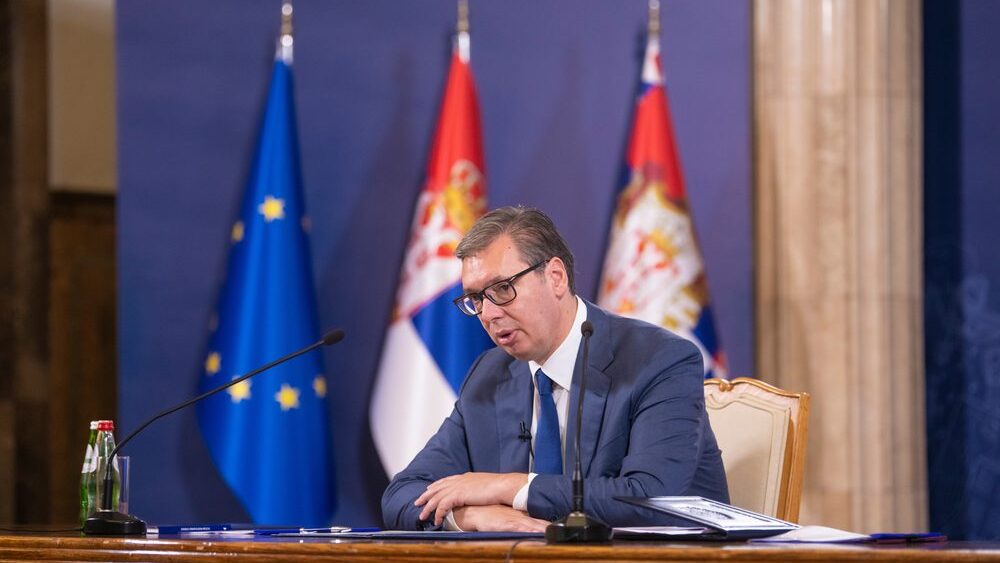
Serbian President President Aleksandar Vučić
Photo: Dragan Mujan / Shutterstock.com
Tractors are blocking key transport junctures in the northern agricultural region of Vojvodina in Serbia for the second week in a row. The protest comes as part of a bitter dispute between farmers and the central government over an increase in subsidies weeks before elections scheduled for December 17th.
Demonstrations began on November 12th in the northern city of Subotica over the Serbian government’s refusal to honour commitments removing excise duties on fuel.
SERBIA – The farmers are still standing!
— Elander & the News (@ElanderNews) May 19, 2023
Ministry of Agriculture leased 3,000+ hectares of the best arable land to the UAE at €250 per hectare for 30 years!
Serbian farmers lease at €400 per hectare for a max of 3 yrs!
We hear you Serbia 🔥
pic.twitter.com/qcQeNQ3w5z
Serbian politics is already tense following the eruption of violence between ethnic Serbs and authorities in neighbouring Kosovo, as well as a school shooting in May that forced snap elections. Belgrade is also continuing to pursue EU membership despite criticism of its historical irredentism and close ties to Moscow.
The protests are being backed by the country’s primary opposition parties on both the Left and the Right, which are hostile to the ruling Serbian Progressive Party and President Aleksandar Vučić. They are calling for greater financial incentives for dairy production and a tripling in state subsidies for farmers.
Protests are now blocking a major oil refinery in the city of Novi Sad as crunch meetings continue between caretaker Serbian PM Ana Brnabić and farmers’ groups to resolve the matter.
Belgrade has been quick to blame the protests on foreign interference, specifically British intelligence, a suggestion that the UK ambassador publicly mocked by posting an edited image of James Bond on a tractor.
UK ambassador to Serbia responds to Serbian press reports quoting “news sources” that MI6 is behind recent farmers' protests.
— Julian Borger (@julianborger) November 20, 2023
Pretty good. https://t.co/wCBJmYtgyf
Farming groups have expressed confidence that the government will concede to their demands as the Serbian agricultural sector prepares for the impact of potential integration into the EU over the course of the next decade.
Despite public support for Ukraine against the wishes of its historic Slavic ally Russia, economic considerations and a failure to recognise Kosovo on nationalist grounds could derail any future accession negotiations for Serbia and the EU. Eurocrats failed to secure a normalisation agreement between Belgrade and Pristina last month.
While Vučić and his Progressive Party are expected to triumph comfortably in next month’s election, he is feeling the heat from various pro-EU parties, as well as Serbian ultranationalists who accuse him of being too soft on Kosovo and NATO.
Serbia is not the only European nation facing serious discontent from farmers. On Monday, Polish farmers joined truckers objecting to trade liberalisation with Ukraine, while EU voters are expected to give a negative verdict on green policies during next year’s European elections.
